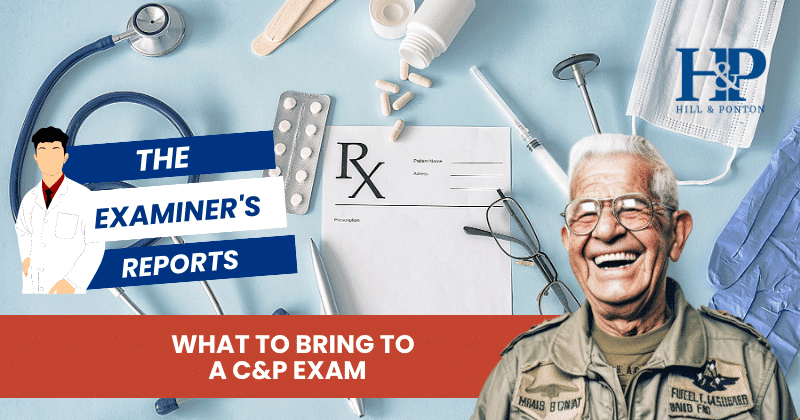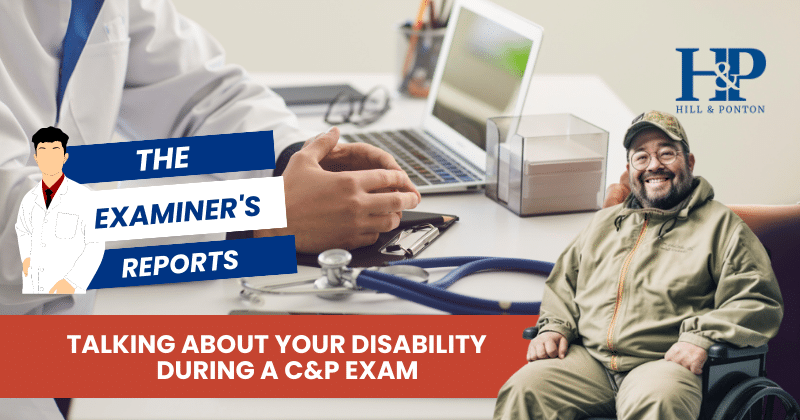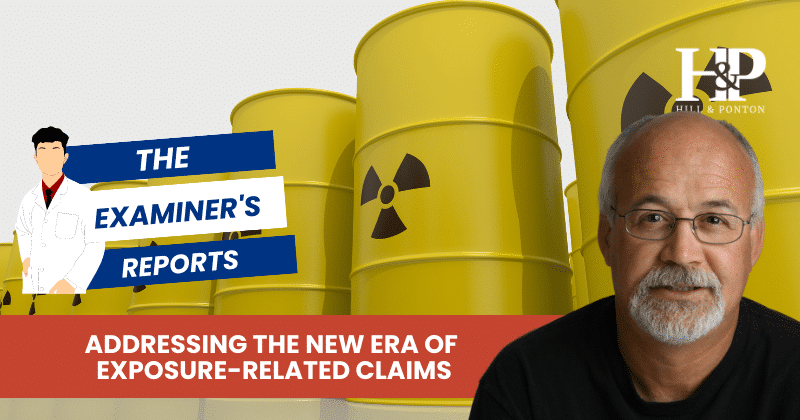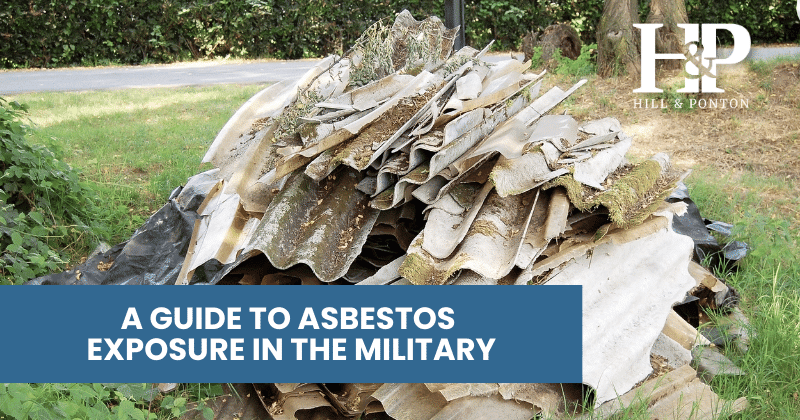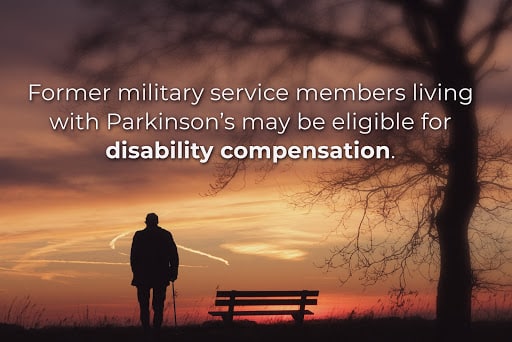
There has been a raging public discussion in recent years surrounding the concept of dangerous exposures veterans often endure.
So much so, in fact, that the PACT Act of 2022 was passed to further formalize the process surrounding exposure-related claims.
When veterans submit these new types of claims, examiners like myself must offer a new type of medical opinion that is laser focused on the question of exposures and their relevance to various illnesses.
As a disability examiner with several years of experience performing VA C&P (Compensation and Pension) disability examinations, I have had the privilege of working closely with veterans and witnessing the impact of these occupational and environmental exposures and seeing the reasons they tend to fail.
If there’s one thing I’ve learned from this, it is that there’s a lot of confusion on what exposures are likely or unlikely to do to veterans.
This confusion leads to veterans submitting unsuccessful claims.
Getting Ready for a Toxic Exposures VA C&P Exam
Veterans endure certain exposures that are uncommon to the general public. For the purposes of this discussion, we’ll stick with the main type of exposure intended by the PACT Act: toxic or particulate exposures.
Based on the deployments you may have toured, the bases you may have served in, and your MOS, your exposures are likely to be vastly different than other service members’.
To help in understanding and formalizing the specific exposures you’ve suffered, the VA offers examiners what’s referred to as a Toxic Exposure Risk Activity (or “TERA”) Memorandum, and potentially an Individual Longitudinal Exposure Record (or “ILER” report) which gets a lot more specific on the exact exposures, levels over permissible limits, potentially relevant illnesses, etc.
If your illness is already considered presumptive illness based on your exposure to Agent Orange, Burn Pits, or others, then your C&P exam will not require your examiner to complete a medical opinion, but simply to confirm that you are, in fact, diagnosed with that condition (we have lots of helpful resources on the H&P blog for illness-specific criteria).
Now that we’ve laid some groundwork, let’s talk about the popular reasons I see these claims fail:
Exposure Claim Failure Reason #1: Vague “Exposures”
Toxic exposures are indeed common to veterans, and there is increasing awareness among veterans of this fact, but often veterans are unable to qualify them in precise terms.
As an examiner, it can be difficult to link your illness to an exposure if we don’t know exactly what inhalant, chemical, or particulate we’re talking about.
We want detailed info about the specific compounds being investigated, such as benzene, JP-5 jet fuel, cleaning solvents, asbestos, sarin, or otherwise.
Burn pits themselves contain a lot of known compounds, and many others that are dependent on the specific things that were being burned at that site.
To make sure you’re building up your chances for success, make sure the VA obtains both a TERA memo and an ILER report to outline with a high level of detail all your exposures for your examiner.
To initiate the assessment needed to create these documents, you can book a screening with the VA via their website.
Exposure Claim Failure Reason #2: Lack of Support in Scientific Literature
You may suspect that your condition has relevance to various exposures, but it may help to do some lay analysis to begin with.
Perform a quick search engine lookup on whether there is an established link in medical literature between your condition and the specific exposure in question.
Even if you don’t understand everything you’re reading, it may help to get a sense of the relationship in question and help you determine whether it’s worth the effort of submitting the claim.
A common example I see is sleep apnea and burn pit exposure.
While there is some biologic plausibility to toxic exposures causing this condition, the evidence on this from research studies isn’t substantial.
Exposure Claim Failure Reason #3: Confounding Mechanisms
When we’re asked to evaluate the relationship between an illness and a specific toxic exposure, examiners will (and should) ask a lot of other question about other potential exposures that could be causing your condition.
The nature of most exposure-related claims is that they have to do with chronic diseases or cancers – things like diabetes, heart disease, lung cancer, etc.
By nature, the origin of these illnesses in each individual are incredibly complex, and often evolve out of the combined effect of lots of different variables, like your family history, environmental exposures endured outside of military service, lifestyle factors like diet, alcohol, and drug usage, genetics, and on and on.
Many of these non-military risk factors have been well-established through decades of research, whereas many military-specific exposures have not undergone the same level of scrutiny in the research.
For example, a COPD toxic exposure claim may be incredibly difficult to substantiate if you have an extensive history of smoking, which will likely lead to a medical opinion stating your smoking history is the most likely contributor to the illness (this is what we call a “confounding mechanism”).
If you have one or more non-military major risk factors for developing a condition, it will help your case tremendously to find solid evidence on why non-military risk factors don’t outweigh the contribution of your military exposures.
If this sounds like it can be challenging, it can be.
We often help veterans navigate all of these factors and find the best materials and evidence to support your case.
Exposure Claim Failure Reason #4: Lack of a Diagnosis
All too often, I encounter veterans who are submitting claims for something they’ve never been treated for in the past.
While that is not inherently wrong, a lot of chronic diseases associated with toxic exposures are difficult to diagnose in the context of a 30-minute C&P exam.
If you bring up the medical issue you’re having with your primary care provider or a specialist, they’re likely to order a variety of diagnostics that may take some time to complete, but you will end up with a solid understanding of the specific condition you actually have.
Further, there will now be a paper trail of evidence that you actually suffer from the condition and have a received a formal diagnosis.
This goes a long way in disability claims and showing you actually suffer from the illness you have.
Exposure Claim Failure Reason #5: Exposure Below Permissible Limits
For every toxic chemical you can think of, there is extensive evidence on what exposures are considered “over permissible limits.”
The question of permissible limits is something examiners are very interested in, because the simple fact of exposure to an inhalant may not mean very much if the exposure was brief or low-volume.
To arm yourself with a better chance of success, consider searching for conflicting evidence on what constitutes “permissible limits.”
It may be that the limits given by government documentation may be a matter of heated debate within existing literature.
Exposure Claim Failure Reason #6: Orthopedic Toxic Claims
I frequently see claims attempting to link something like a knee ACL tear to a toxic exposure.
This is very likely to be unsuccessful due to the fact that orthopedic/musculoskeletal issues like an ACL tear are almost always rooted in excessive use, biomechanics, and trauma.
Exceptions to this rule might be that you experienced an acute toxic exposure to a gas which caused you to pass out and fall on your knee.
Another exception would be if you were exposed to one of the few chemicals that are known to cause connective tissue or tendinous damage, like metalworking fluid (MWF), which is used extensively in various machining processes.
Hopefully this will help you have a broader understanding of the common downfalls in submitting toxic exposure claims and how to best prepare yourself for them.
That said, toxic exposure claims tend to be highly detailed and heavily nuanced.
Navigating this and other legal aspects of submitting disability claims can be overwhelming.
Engaging an experienced attorney who specializes in VA disability claims can significantly improve your chances of success.
A skilled attorney will understand the intricacies of the system, help you gather necessary evidence, and effectively present your case to the VA.


